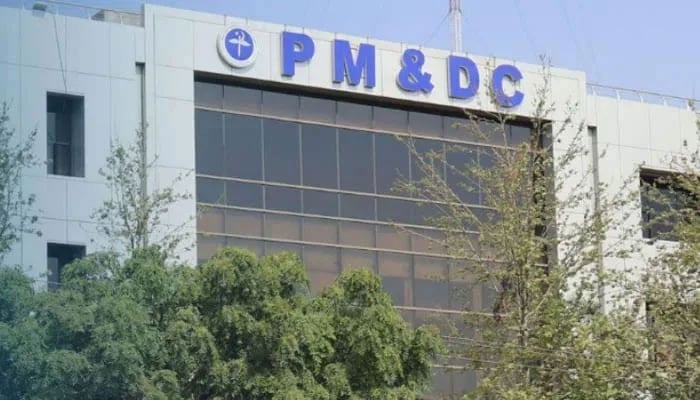ISLAMABAD: The Pakistan Medical and Dental Council (PMDC) has rejected reports of an 80% increase in the fee for the Medical and Dental Colleges Admission Test (MDCAT) 2025, stating that the fee has only been raised by 12.5%.
In a statement, the council confirmed that registration for MDCAT 2025 has begun and the test will be held on Sunday, October 5. “It has come to the notice of the PMDC that there has been a misunderstanding regarding the MDCAT examination fee, which claims that it has increased by 80%,” it said.
“PMDC would like to clarify that the fee for the MDCAT has increased modestly and gradually over the past years,” it added, noting that the exam fee, which stood at Rs8,000 in 2024, had been set at Rs9,000 for 2025 — an increase of Rs1,000 or 12.5%.
The council also explained that the MDCAT will be conducted by universities nominated by federal and provincial authorities, not by the council itself. However, it has prepared a uniform syllabus in consultation with all stakeholders, along with a question bank based on the consensus curriculum of all provinces.
The fee adjustment, PMDC said, was made at the request of the universities conducting the exam to cover rising costs, including printing, enhanced security, administrative and logistical arrangements, payments for invigilators and staff, and ensuring adequate facilities at national and international centres.
Despite high inflation and increased expenses, the council said it remains committed to keeping the fee affordable while maintaining quality and transparency, upholding merit-based admissions, and ensuring equal opportunities for all candidates.
The MDCAT will be conducted through the following universities: University of Health Sciences, Lahore, Sukkur IBA University, Khyber Medical University, Peshawar, Bolan University of Medical and Health Sciences, Quetta, and Shaheed Zulfiqar Ali Bhutto Medical University, Islamabad for Islamabad Capital Territory, Azad Jammu and Kashmir, Gilgit-Baltistan as well as PMDC’s international venue in Riyadh, Saudi Arabia.
